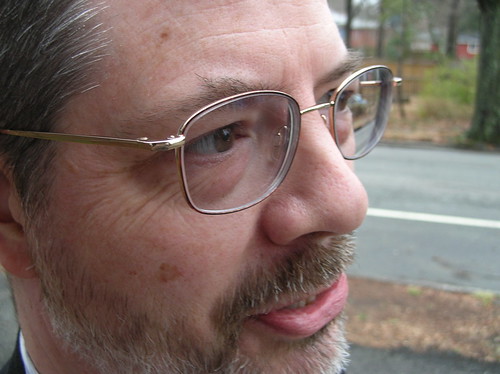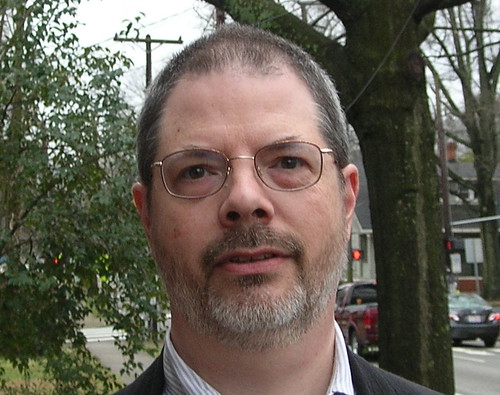Secure Specs
I forgot to mention yesterday that as I was sitting in front of the mirror, permitting the glasses attendant to fiddle with the temples and earpieces of my new glasses, he gave me a small spray bottle of fluid for cleaning my glasses (he admitted, “Soap and water will do just as well”) and a microfiber cleaning cloth (which pleased me more, since those are good for polishing pens).
Then he handed me a piece of cardboard about the size of a credit card. “This certifies that the lenses you have bought are actual authentic transitionals,” he said. “There’s an active secondary market in those, so we give you this card to show that you have the genuine lenses.” Without stopping to think, I pointed out to him that if there’s an active secondary market in so complicated an item as graduated multi-focus eyeglass lenses, there might also be an active secondary market in printed cardboard certificates. He was flummoxed: “I never thought of that!” We agreed, however, that there was no need for him to obtain a card certifying that the card he had given me was a genuine certificate authenticating the graduated lenses. That would be just silly.

